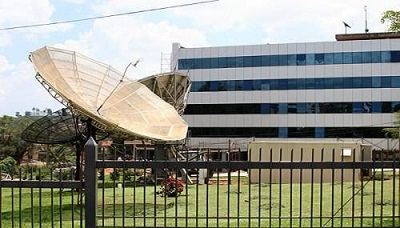
Uganda Broadcasting Corporation is being tasked with handling the country’s digital migration.
According to the Digital Migration policy of Uganda, the main purpose of the migration process is to ensure that all broadcasting services that are currently delivered through analogue network/ technologies are fully replicated on the digital broadcasting network/ technologies with the aim of switching off the analogue broadcasting services at a specific point in time.
It’s hard to deny this was an oversight on the part of the people who drafted the policy, digital migration for Uganda would have reached greater heights if only competition was incorporated into this otherwise brilliant step in the right direction. Since time immemorial the private sector has been a major driving force in contemporary Uganda’s development. There are only four months to the deadline and that is all the time we need to give our National Broadcaster the opportunity to prove itself. Kenya currently has up to 3 of its biggest television stations off air as they try to sort out the digital migration issues. They were shut off after the deadline passed on 2nd February 2015. We would not like to see the same happen in Uganda come June.
The policy stipulates that UBC be unbundled into infrastructure and content, and in a bid to make this possible UBC formed Signet to handle Content, although organizationally intertwined, these businesses are actually very different. They each play a unique role; they each employ different types of people; and they each have different economic, competitive, and even cultural imperatives. The company is chaired by Engineer Batanda, his reputation precedes him. He is one of the engineers who spear headed the setup of the reknown Light House Television that has been on the scene for a long time. Signet has had its fair share of scandals in the recent past, from assuming a dummy license would pass for the real thing to being affiliated to Chinese and American companies. However it has obtained a provisional license.
During a Stakeholders meeting on digital migration held at Serena on 20th February, a lot was said. What caught my attention was the National Broadcasters presentation by Mr. Kin Karrisa, who spoke on behalf of broadcasters in Uganda. He spoke on the somewhat exaggerated carriage fees US$5000 for Kampala and US$2500-3000 stretching out. With these fees it would be possible for a broadcaster to upgrade their already existing masts and be able to carry their own signal. Important to note is Uganda Communications commission gave UBC a grant under the Rural Communication Development Fund to make this possible. UBC can rethink these fees.
The digital divide has also caused a lot of contention in this journey, activists, MPs and the general public have asked the question, “what happens to the common man down in a remote village who cannot afford a television set, let alone a set-top box popularly known as a decoder?” This is an important group to consider. Uganda is one of the poorest nations in the world, with 37.7% of the population living on less than US$1.25 (UGX3,592) a day. So how will they afford these decoders that go for about UGX 120,000?
The policy has a road map with the Phase I dealing with Kampala. This has been complete since 2013 with masts in Kololo. The signal extends 60 km outside, phase II deals with 17 sites that already have UBC masts, the third phase will be gap filling. Phase II and III will cater for these plus the fundamental rules of demand and supply will iron out any differences, sooner than later these set top boxes will be affordable for everyone. Currently a set-top box known as StarTimes Light is available at a market price of US $2.8 in the country. Customers would be required to pay an initial subscription fee of US$14.5, which entitles them to seven months of digital television service.
Noteworthy, are the resolutions of the meeting, that everyone should play their part, government should avail adequate funds for the roll out of the project (Members of the Parliamentary budget committee promised to avail funds). UCC as the regulator should harmonize on licensing and provide low cost widely available set top boxes that fulfil the minimum requirement. UBC as the sole signal carrier subsidize its carriage fees, prioritize massive public and consumer awareness and explore the possibilities of public private partnerships. We as Ugandans, develop our own local content to be put on the free to air channels.
The idea of UBC being our sole digital distributor is not so farfetched, the corporation has stood the test of time since 1963. However, emphasis should be directed to UBC’s complete autonomy after the digital migration. This is something that the other National Broadcasters at the moment do not seem to agree to.
